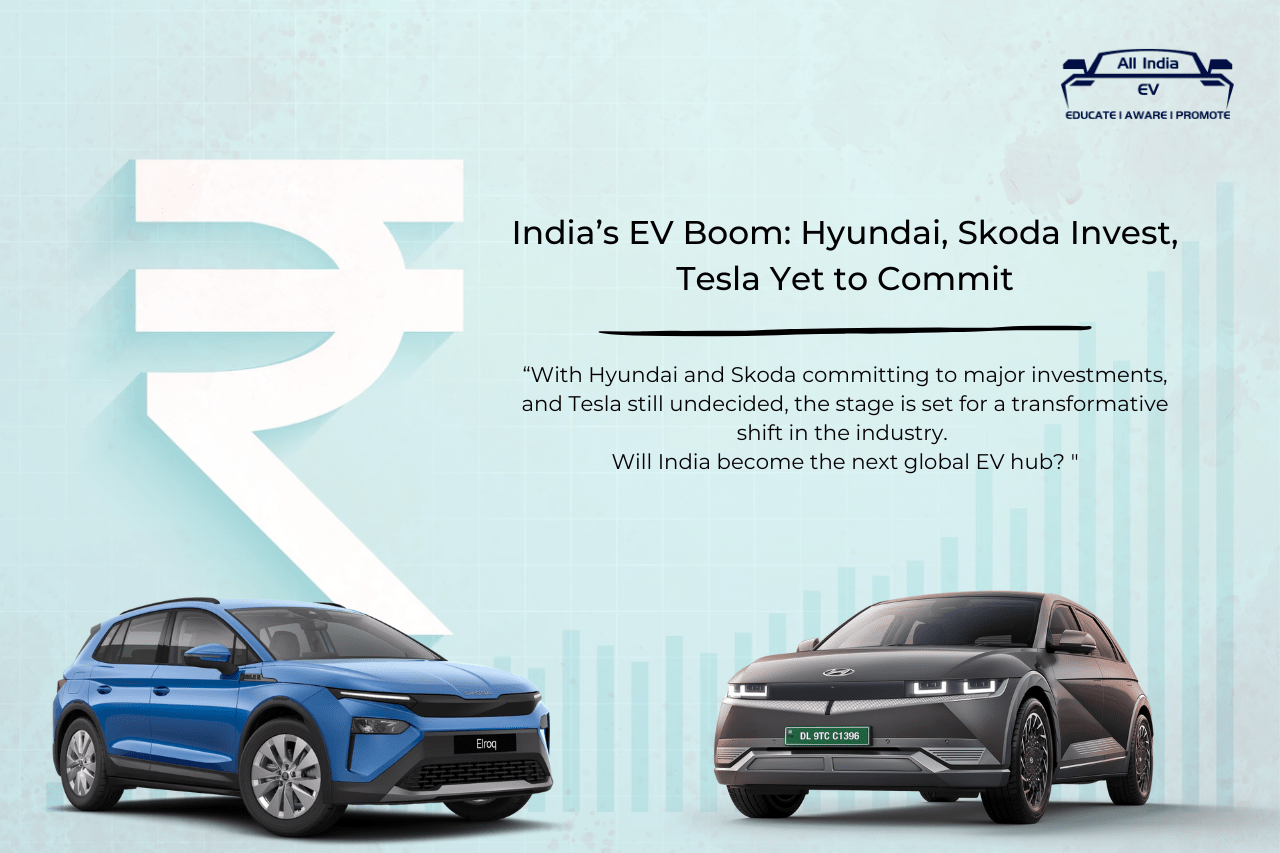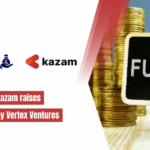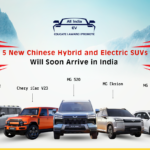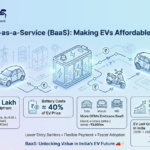
India’s EV Boom: Hyundai, Skoda to Invest in Indian EV Market, Tesla Yet to Commit
India’s electric vehicle (EV) landscape is undergoing a significant transformation, driven by proactive government policies and substantial investments from global automotive giants. The recent commitments by Hyundai Motor Company and Skoda Auto to Invest in Indian EV market underscore the nation’s potential as a global EV manufacturing hub.
Government Initiatives Fueling EV Growth
In March 2024, the Indian government unveiled the Scheme to Promote Manufacturing of Electric Passenger Cars in India (SPMEPCI), aiming to attract substantial investments in the EV sector.
This scheme offers significant import tax reductions—from rates as high as 100% down to 15%—for automakers investing at least $500 million in domestic EV manufacturing and sourcing 50% of components locally. The policy’s primary objective is to position India as a global leader in EV production, reducing dependence on fossil fuels and promoting sustainable transportation.
Recognizing the need for flexibility, the government is considering expanding these incentives to include automakers utilizing existing manufacturing facilities, rather than limiting benefits solely to those establishing new plants. This adjustment aims to encourage investments from companies like Toyota and Hyundai, facilitating a smoother transition to EV production within their current infrastructures.
Hyundai and Skoda to Invest in Indian EV Market
Hyundai Motor India has expressed interest in the SPMEPCI scheme and is currently evaluating the policy details. The company is seeking clarity on whether investments in research and development can be counted towards the $500 million investment threshold. This consideration aligns with Hyundai’s strategy to enhance its EV offerings and expand its footprint in the Indian market.
Skoda Auto, leading Volkswagen Group’s investments in India, has also shown enthusiasm for the EV policy. However, Skoda advocates for the inclusion of hybrid and plug-in hybrid electric vehicles (PHEVs) within the incentive structure.
Martin Jahn, Skoda’s global board member and head of sales and marketing, highlighted that in markets like China, hybrids and PHEVs constitute a significant portion of new energy vehicles. He suggests that a similar approach could be beneficial for India, considering the current challenges with charging infrastructure and consumer acceptance of pure electric vehicles.
VinFast’s Entry into the Indian Market
Vietnamese EV manufacturer VinFast has announced plans to enter the Indian market, viewing it as a pivotal growth frontier. The company has committed to investing $500 million over five years to establish a manufacturing facility in Tamil Nadu.
This plant is expected to have an initial production capacity of 50,000 vehicles annually, with the potential to scale up to 150,000 units. VinFast’s expansion into India aligns with the government’s vision to promote sustainable transportation and reduce vehicular emissions.
Challenges and the Road Ahead
Despite these positive developments, the Indian EV market faces challenges. As of early 2025, electric vehicles account for only about 2.5% of total vehicle sales in India. Factors such as limited charging infrastructure and higher upfront costs contribute to this modest adoption rate. The government aims to increase EV penetration to 30% of passenger cars by 2030, necessitating continued investments in infrastructure, favorable policies, and heightened consumer awareness.
In conclusion, India’s EV sector is at a transformative juncture, bolstered by strategic government initiatives and significant investments from global automakers. The collaborative efforts of policymakers and industry stakeholders are poised to accelerate the adoption of electric vehicles, paving the way for a sustainable and environmentally friendly transportation ecosystem in the country.
This article is based on information from Moneycontrol and Reuters.









